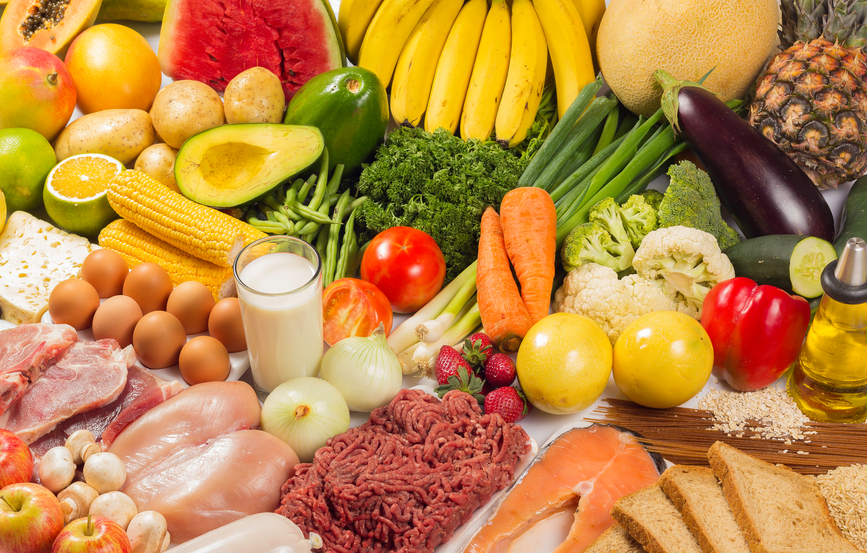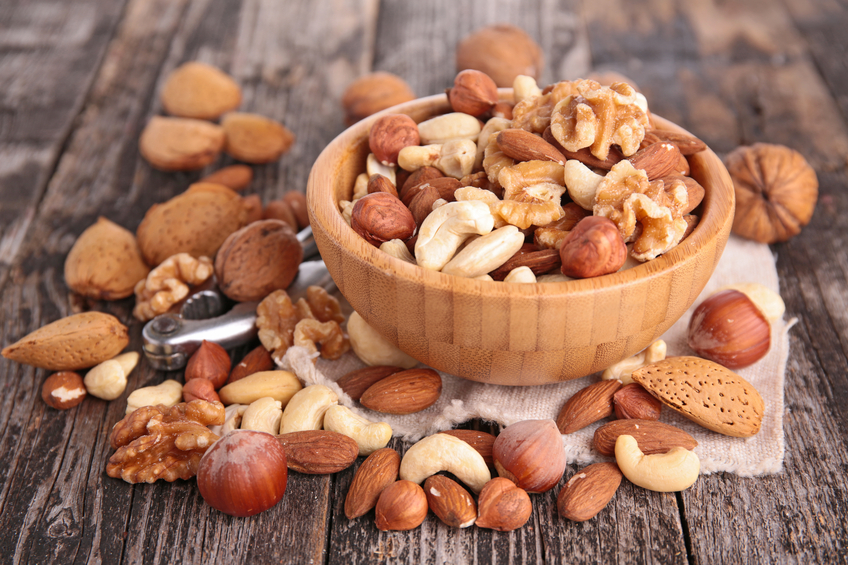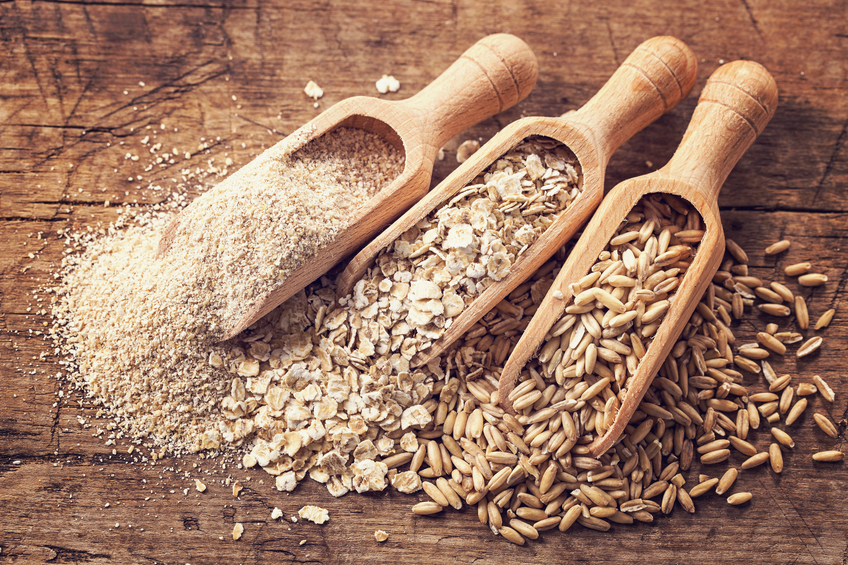Michelle Kickham looks at some credible and tasty ways to get all the protein you need without relying on unwanted dairy…

Macronutrients; carbohydrates, fats and proteins are crucial. Life cannot be sustained without them. Of course, all three are important, but protein definitely gets the most attention – and for good reason! Protein is essential for the growth and repair of almost everything in our bodies, and usually the little construction workers in our bodies doing this repair work are proteins! The importance of protein is a topic that merits its own article, but suffice it to say, we can’t live without it.
Although we know how important protein is, many of us don’t find it easy to consume an adequate amount each day, whether due to dietary restrictions or just a lack of awareness. For this article, we’ll assume everybody knows that we need to consume at least 1g of protein per kilogram of bodyweight (and this is an extremely modest value) and instead, we’ll focus on where to get your protein when your body has a hissy fit anytime it comes in contact with dairy?
Meat, fish & eggs
An obvious one, but a must-have on a list for non-dairy sources of protein are meat, fish and eggs. All meats (the leaner, the better) are terrific sources of protein, boasting a complete amino acid profile and up to 40g protein per serving. Lamb, beef and chicken rank highest in the protein scale. The ‘meat’ of the sea can’t be ignored. Tuna, salmon, cod (the list goes) not only bump up the protein content in your meal, but also provide a hefty dose of heart-loving omega-3 fatty acids. Eggs are another perfect non-dairy protein source and make for the perfect protein-packed breakfast, lunch or dinner!
Although meats are great sources of protein, good quality meat at every meal is not always an option and, if you’re a penny-pincher like me, you know that meat is actually pretty expensive! To get the best bang for your buck, invest in good quality meats and enjoy them with dinner and lunch where possible (tuna is great for this and fairly cheap) and crack out the eggs for breakfast time.
Nuts & seeds

Whether they be in their most delicious form (hello, peanut butter) or eaten whole, nuts and seeds provide a powerful protein punch. A typical serving of almonds contains 6g protein, along with plenty of vitamin E, for those ‘because your worth it’ hair, skin and nails. Personally, I love omega-rich walnuts – they look like brains, and they feed your brains! Nuts and seeds are convenient, affordable (unless you want to go organic, then you may need to take out another mortgage) and a delicious way to add protein to any meal. Chia, flax and sunflower seeds are perfect additions to any cereal, while almonds make for a speedy and tasty snack.
Think your dinners are boring? Try throwing in some peanuts to your next stir fry – it adds not only protein, but a great crunch. I warn against the overconsumption of nuts, as eating too many can result in the development of an intolerance (especially almonds) and, for some, the high fat content may be an issue.
Beans, legumes & tofu
In my opinion the bean is underrated – it deserves some love, too! Beans and other legumes (think lentils, chickpeas, black beans etc) are terrific sources of protein. Chickpeas, which make fantastic additions to salads, provide 8g protein per serving along with plenty of iron and dietary fibre. With a slightly nutty taste, lentils make for a great meat substitute in pasta dishes. Tofu – made from soybeans – is high in protein, easily digested and can be enjoyed at any time of the day. Tofu scramble, which tastes almost exactly the same as scrambled eggs, makes for a filling, protein-packed breakfast or lunch and, when prepared correctly, tofu can also mimic both the texture and flavour of meat. So once you have some tofu in your arsenal, you’re sorted.
Grains

Grains are a staple food source and are usually thought of as ‘pure carbs’. It’s true that grains are predominantly carbohydrate rich, but some also provide a decent amount of protein per serving. So, when chosen wisely, you can kill two birds with one stone. Oats and quinoa rank the highest with 9g and 7g per 30g serving respectively. Oats are my go-to grain (yes, even for lunch – I eat it wherever rice is called for, because I’m too lazy to cook rice – but it tastes better), but quinoa has become incredibly popular in the last few years – as I’m sure you’re aware of. The ‘quinoa fad’ came about around the same time veganism became popular, which makes sense as quinoa is a complete protein. It contains all essential amino acids required by the human body. So, whether you’re vegan or a chicken-lover like me, don’t underestimate the value those grains can provide!
Protein powders
Protein powders are everywhere nowadays and we can probably all agree that some people can go a bit OTT with them. However, there is a place for them in almost anyone’s diet – especially if you’re limited in food choices, of older age or regularly exercise. If you’re avoiding dairy, chances are you’re missing out on a decent chunk of protein in your diet, and so a protein powder is something I would definitely recommend – plus, some of them taste amazing! Obviously, the famous whey protein is a no-go, but there are plenty of non-dairy alternatives such as rice, soy, pea and even beef protein (although I wouldn’t recommend the beef protein as it does not taste good. It’s good for your joints, though!). Personally, I find brown rice protein to be the best alternative, having less of a bitter flavour compared to the other non-dairy options. Non-dairy protein powders are also high in fibre, which is why I like them with my breakfast as it keeps me full until lunchtime. I always buy my protein from bulk powders – they’re cheap, well-trusted and the flavours are always on point.
 Michelle Kickham is a doctoral candidate in Immunology and Organic Chemistry and a current Irish Research Council scholar. Michelle believes that science holds the power to make a real difference and her goal is to explain the science behind health claims, offer advice and tips, as well as sharing healthy recipes to suit almost any diet.
Michelle Kickham is a doctoral candidate in Immunology and Organic Chemistry and a current Irish Research Council scholar. Michelle believes that science holds the power to make a real difference and her goal is to explain the science behind health claims, offer advice and tips, as well as sharing healthy recipes to suit almost any diet.
For more information, visit www.lifeliftsandlabcoats.wordpress.com
